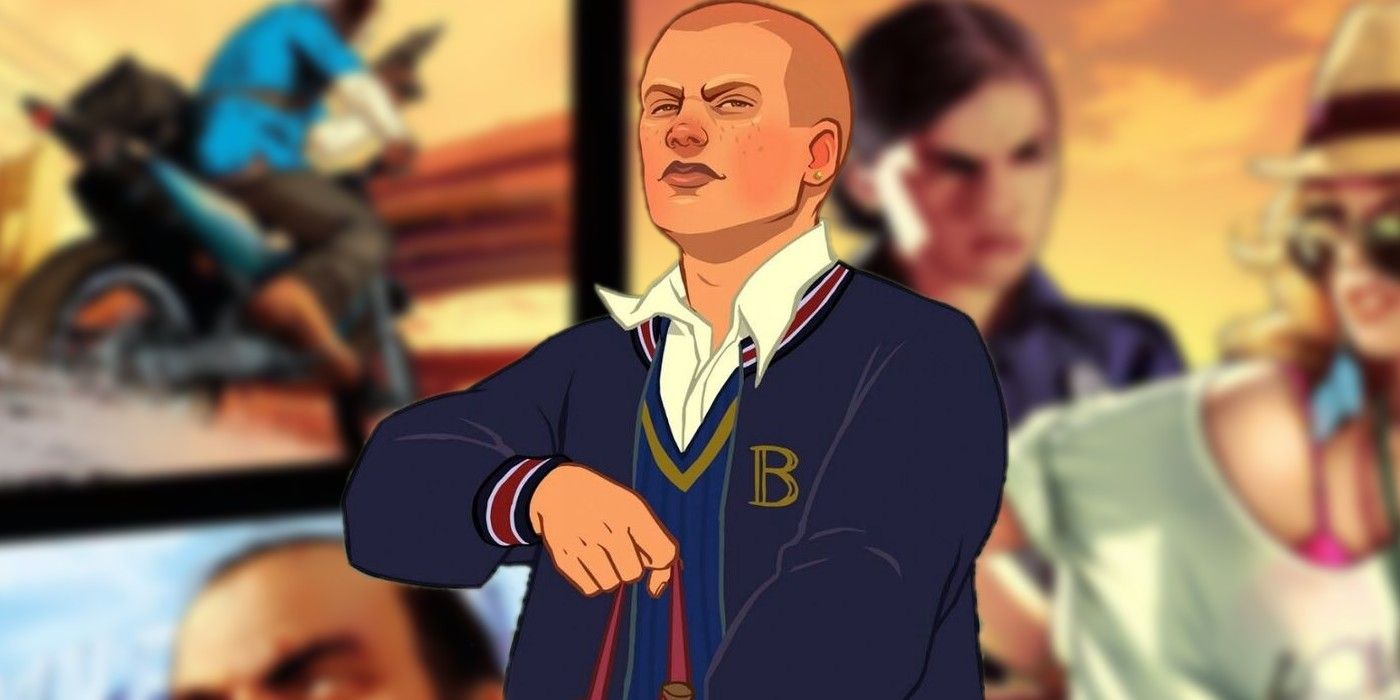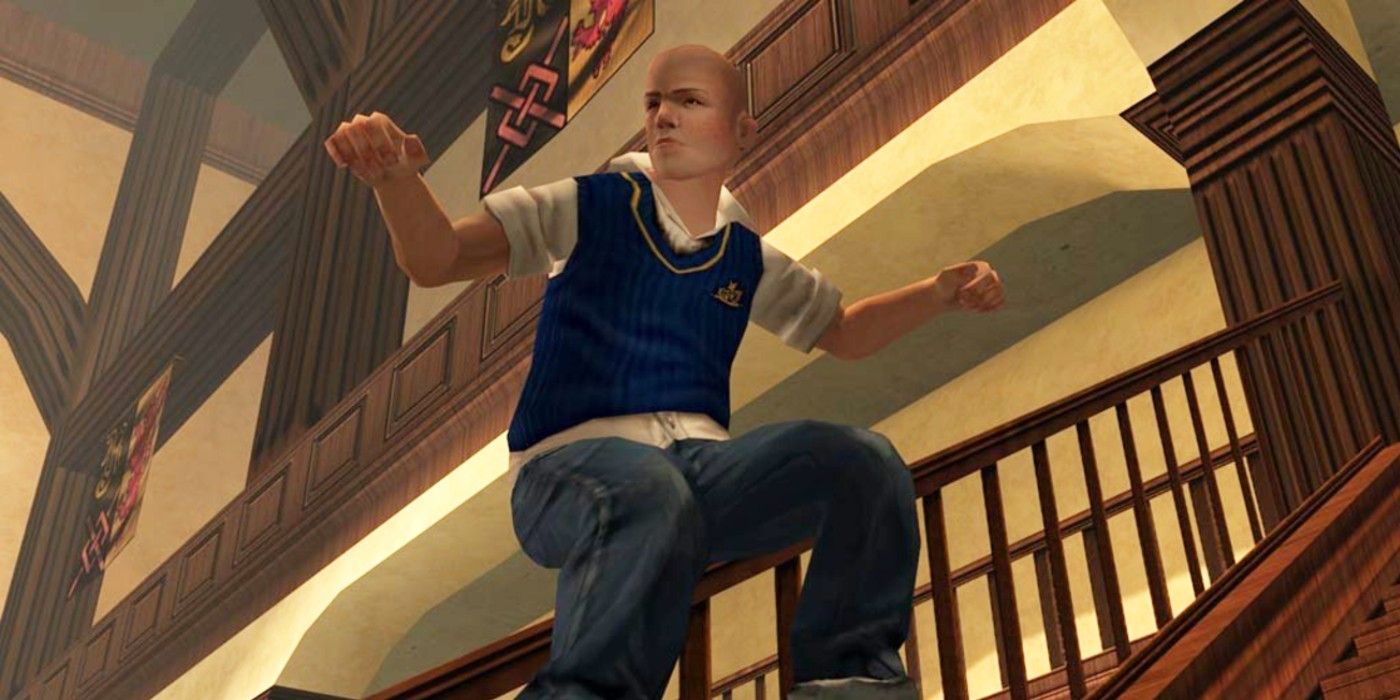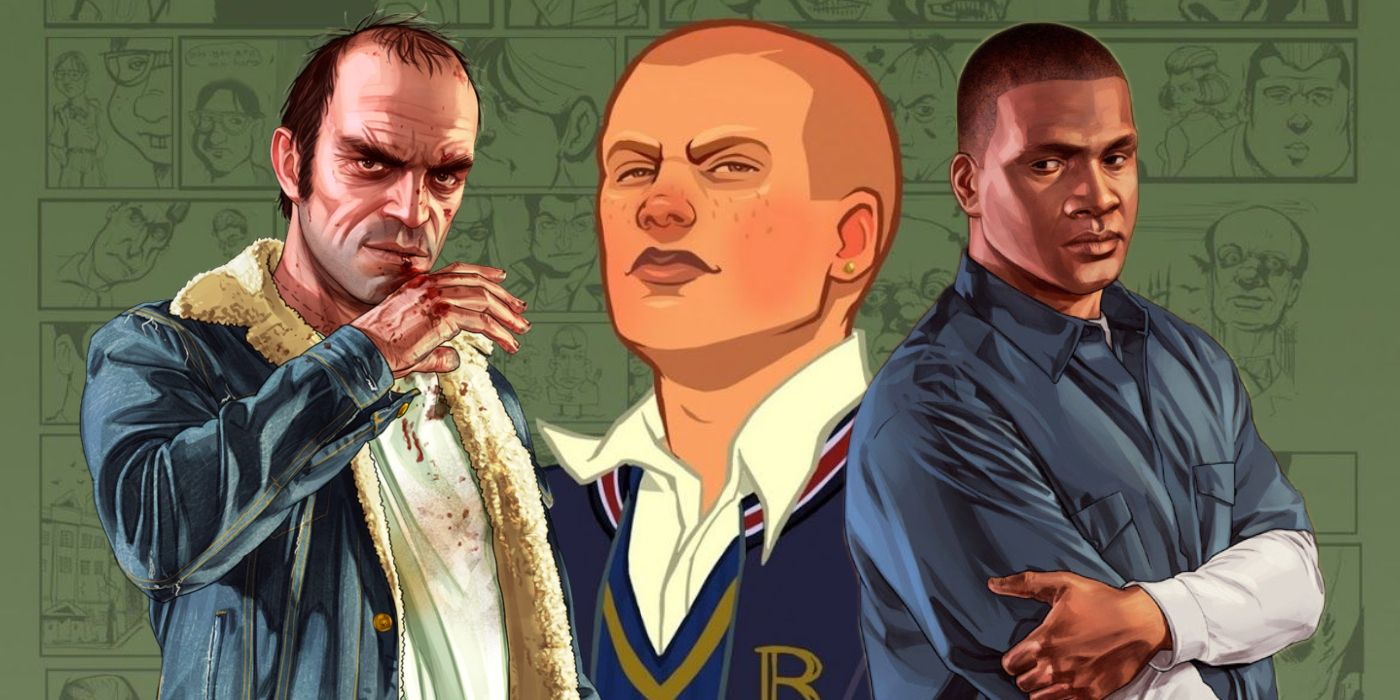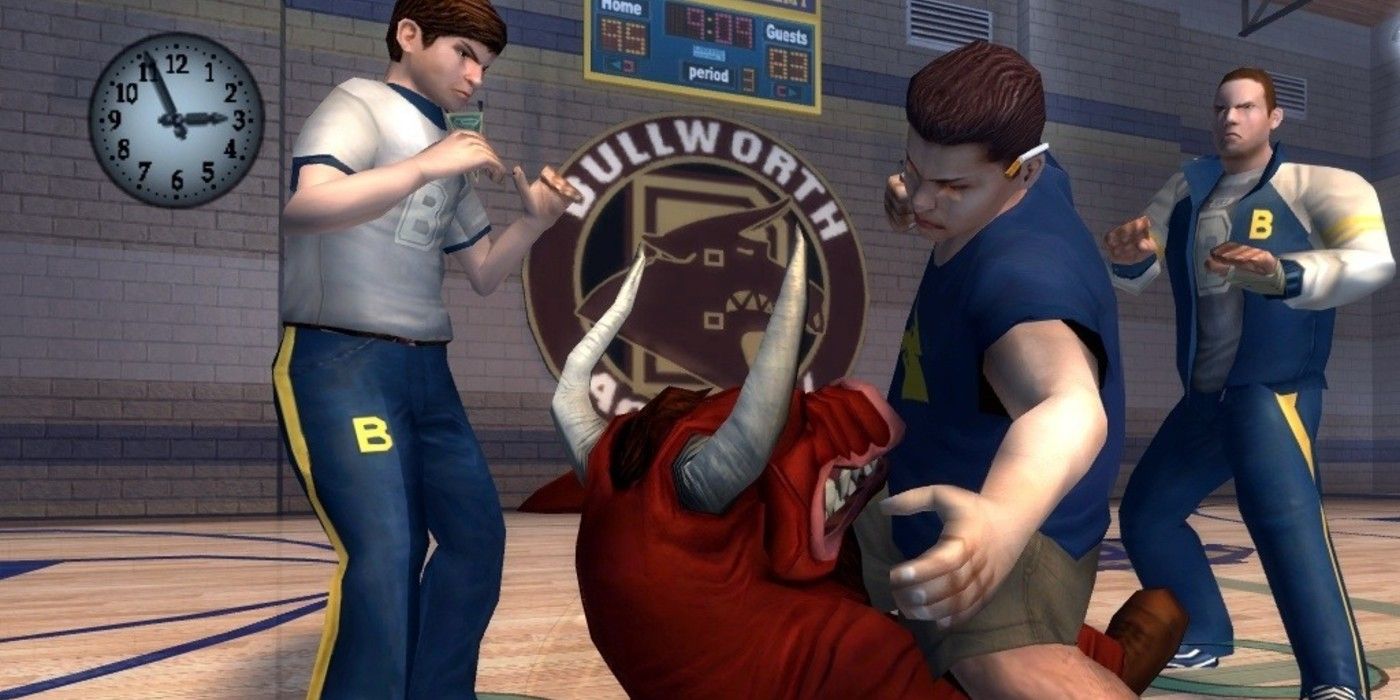Rockstar Games are known to engender controversy, but 2006 release Bully faced far more than its fair share before it was even released. Announced shortly after Grand Theft Auto: San Andreas' Hot Coffee mod and sharing a release window with GTA's second PSP spin-off, Vice City Stories, Bully came into the world with the red letter of being a Rockstar action-adventure sandbox game - with all of the positives and negatives that implies.
Bully's protagonist is Jimmy Hopkins, a frequently-expelled teenager whose new stepfather has decided to ship him off to boarding school so that he and Mrs. Hopkins can have him out of their hair while they enjoy their honeymoon. Jimmy is a caustic rebel that spends the game making friends and enemies in a new environment in the fictional New England town of Bullworth Vale, headlined by Bullworth Academy. While it's possible this place is driving distance from Grand Theft Auto's Liberty City and/or Alderney, that's never confirmed in the game.
Over the course of Bully's story, Jimmy brings a measure of peace to the five rival cliques in the school - Bullies, Nerds, Preppies, Greasers, and Jocks - before being set up by a one-time ally, meeting the local townsfolk, and clearing his name. Based on the title and the publisher, however, groups like Bullying Online and Peaceaholics were criticizing the game's alleged themes before it had even launched (via Ars Technica). Famed (and now disbarred) anti-GTA lawyer Jack Thompson tried to have Bully banned from state of Florida (via Gamespot) and when the remastered Bully: Scholarship Edition came out in 2008, a judge in the nation of Brazil had the game banned from import, a decision which lasted until 2016, based on the idea that it encouraged teens to bully and harass each other (via Folha de S. Paolo, Globo).
Rockstar Didn't Want Bully to Make Bullies
While Bully does satirize the real world, it is more playful and less adult in its themes than Grand Theft Auto. It is not a game that encourages or glorifies teenagers picking on or harassing one another, so much as it tells a coming-of-age tale that encourages its audience to see beyond first impressions and stereotypes. While not groundbreaking among media in its subject matter, it is still unique in its genre - as many games focused on teen protagonists in videogames tend to be RPGs, especially RPGs from or inspired by Japanese developers.
Based on its name and people's preconceived notions, the main arc of Bully has a sort of meta to it. Though violence is a primary mechanic of the game, none of it is lethal, and the game prioritizes self-defense. While the main character's ego gets out-of-hand leading into the climax, his attempts to take over the school are correlated with, if not dependent on, making it a more peaceful place, rather than making money taking over a criminal underworld. While Bully's ending is about the player character righting the world around them and NPCs getting their just desserts, the game doesn't climax with a violent shootout or pushing a car into a lake with a billionaire in the trunk. Instead, Bully ends with saving the head teacher from a kidnapping, getting a girl back into school, and finding love (albeit of the teen puppy dog sort). Bully is not the game people thought it was before release.
Bully Is Nothing Like GTA
While protagonist Jimmy Hopkins is of driving age, at no point in the game can players steal a car and run people over with it - though at one point Jimmy gains access to a go-kart. Bully's primary modes of non-pedestrian transportation are bikes that Jimmy earns by working in shop class. Bully is not a lethal shooting game, either; the slingshot and potato cannon in the game are much less likely to cause serious injury than in real life.
Bully involves crime, but only in the broadest definition. It does not glorify or romanticize maniacal violence the way the Grand Theft Auto games do. The crimes are all petty misdemeanors, no hyper-violent over-the-top felonies, and the character's act 2 emotional dip comes from him being framed, rather than simply facing the consequences of frequent antisocial misdeeds. Perhaps to their credit, many of the Grand Theft Auto games reflect the Hollywood tradition of showing how a life of ill-gotten gains often goes awry, though Rockstar also imbue the games with the power fantasy of being able to take all comers.
Bully isn't as interested in that arc, though there is some overlap. Bully actually shows that there can be some value to coloring between the lines. The game demonstrates school as having practical and social value, encouraging kids to go to class by throwing them in detention if they get caught ditching and also rewarding good performance in the mini-games by making Jimmy's apologies and flirtations more effective (English and Art, respectively), or by unlocking collectibles (Photography), weapons (Chemistry), and vehicles (Shop).
While GTA games draw inspiration in story ideas, references, and themes from movies about criminal enterprise, Bully draws from coming-of-age tales and teen dramas such as Revenge of the Nerds, The Catcher in the Rye, and the teen films in John Hughes's filmography. The characters largely represent archetypal cliques audiences would be familiar with from John Hughes movies or their own secondary school experience. The setting is a far cry from GTA, and the focus of its satire is generally more specific-yet-lighthearted. It's almost as if, because they couldn't be as vulgar, the jokes had to be smarter in some ways, or at least more subtle.
Bully Is Still A Rockstar Game
This is not at all to say that Bully has nothing in common with Grand Theft Auto, Red Dead Redemption, or other Rockstar titles. It is, after all, an open world action-adventure. The "Wanted"/"Busted"/"Wasted" system is replaced by the "trouble" system in Bully. Police still exist in town, dropping Jimmy off in front of the police station or campus if he is out when he is not supposed to be, or doing something he is not supposed to be doing. On campus, ditching and vandalism are punished by being chased by Prefects and faculty. Three strikes and the player character has to do tasks in detention - like mowing the lawn or shoveling snow. Mini-games at the fair include go-kart racing and hitting a bell in a strength competition, similar to GTA IV's Firefly Island. The game has an air of warmth and wistfulness about it, even as it tends toward being biting and incisive.
Despite its preemptive controversy, Bully was well-received, and won several accolades and award. A sequel was hinted at by developers and the game composer several times between Bully's release in 2006 and the 2012 merge of developer Rockstar Vancouver with Rockstar Toronto (who developed the Wii port for the game). The last official comment on a Bully sequel came in September 2013, when Dan Houser (writer, producer, voice actor, and general Rockstar Games architect) said he had a lot of ideas on what a Bully sequel could look like.
Since 2017, there have been rumors again and again about a Bully sequel, but Rockstar continues to play coy and keep them unconfirmed, with the closest thing to an exception being in 2019 when alleged insider sources said the game was briefly developed before being scrapped. (via Video Games Chronicle). Whatever the future of the franchise holds, Bully is not the game many people assumed it would be; it was more pleasant, friendlier, and a genuinely brilliant experience.
Sources: Ars Technica, Video Games Chronicle, Gamespot (via Web Archive), Folha de S. Paolo, Globo




